Cyber Wknd ’24
approx 10 minute read
Cyber weekend is on the horizon! That’s basically Black Friday through to Cyber Monday with the odd extended sales period on either side.
With many businesses expecting their largest chunk of orders during this adopted ‘holiday’ period, it’s arguably the biggest sales event in the calendar. Retailers slash prices for a limited time to create urgency and encourage sales. And it works.
Total UK sales during Black Friday 2023 reached an estimated £13.3 billion, up 7.3% year-on-year. Not wanting to miss out on the fun, we’ll be launching our very own event on Black Friday, so stay tuned for your chance to win. In the meantime, here are some key dates, cool facts and useful tips for all cyber sales fans.
Key dates in 2024
Half a dozen useful timestamps dancing around this pre-christmas sales event
Grey Thursday
28 NOVEMBER 2024
This day is actually Thanksgiving in America, the 4th Thursday of November. It’s a tad controversial because on a day when people are meant to be spending time with their families, they are enticed to go shopping and spend money instead (often on gifts for the people they were meant to be having dinner with). But if you’re not in America, go nuts, guilt free. And if you are, Happy Holidays!
Black Friday
29 NOVEMBER 2024
Brits originally had a different kind of Black Friday: it was the last Friday before Christmas when revellers had one too many eggnogs and things got a bit messy. That now appears to have been replaced by its equally messy American cousin, the Black Friday retail event. Coined in the 1900s as the day after Thanksgiving, it became a popular shopping day for the masses that’s a bit like our Boxing Day sales.
Cyber Monday
2 DECEMBER 2024
Cyber Monday is just like Black Friday, really. The difference is that a lot of people (in the US at least) are off work on the Friday but are back to work on the Monday. So we guess it’s probably easier to order online than hit the shops on the Monday. Most of the deals from Black Friday go right through to Cyber Monday anyway and many retailers count Cyber Monday as the official start to the Christmas shopping period.
Small Business Saturday
7 DECEMBER 2024
Here’s one you might not have heard of: it’s a campaign with the aim to champion small businesses. That shop local sort of vibe. Originally this started offline, on the high street, but some agile traders have been able to take the promotion online. And why not? There’s nothing stopping small businesses from competing online. Small Business Saturday reaches millions of customers and businesses each year. You can get involved here.
Free Shipping Day
14 DECEMBER 2024
Free Shipping Day is a promotion that combines the promise to deliver by Christmas Eve with the real sweetener that is Free Delivery. It’s a campaign that’s gained momentum since its inception in 2008 and if you can afford to include free delivery on all orders then it might be worth getting on board. It’s probably not something you’d want to advertise in advance though, as it might tempt people to hold off ordering until the 14th.
Last UK Posting Day
FROM 18 DECEMBER 2024
Many e-tailers will benefit from winning last-minute sales due to guaranteed Christmas delivery. What is the last date that you will be able to accept orders? If you have an established relationship with a courier already, then you’ll want to check with them, but as a guide, here’s what Royal Mail are saying:
- Friday 20th December – 1st Class
- 23rd December – Special Delivery Guaranteed
Origins of Black Friday
Here’s a fun little snippet that will make you popular at your next pub quiz. Rumour has it in the 1950s lots of people, tourists and shoppers came out onto the streets of Philadelphia the day after Thanksgiving for the Army versus Navy football game. It caused quite a bit of chaos on the streets which the Police had to deal with. Naturally, they weren’t too keen on the extra hassle or overtime and so referred to the occasion as ‘Black Friday’. (1) (2)
Initially, this spread throughout Philadelphia but by the 1980s the commercial holiday had been adopted by the majority of America. Although later its name was believed to have more to do with retailers getting into the black (i.e. turning a profit on their bottom line) for the first time that year than the original disorderly story.
Black Friday made its way to the UK on 2010 when Amazon first introduced the concept. Incidentally, Amazon are also responsible for over a quarter of the Black Friday sales still today, processing more than four million transactions on Black Friday in 2019. In 2013, ASDA (which is owned by the American company, Walmart) held its own sale and people had fisticuffs over flat screen TVs, one man in Bristol was even arrested during the ensuing mayhem! (3) (4)
Image: SunSentinal
What does it mean for the high street?
All that considered, it’s no surprise that any mention of Black Friday can start to conjure visions of people camping in queues outside storefronts and fighting over electronics in people’s minds. However the reality of Black Friday is far from a consumerist war zone as the majority of the action tends to happen online.
Look at this stat from a recent PWC survey which suggests that almost 3/4 of all cyber weekend spend will be done on a device.
But that doesn’t mean real shops have to sit out. On the contrary, it gives you an opportunity to focus on customers and create an event experience that people will want to be part of – something Amazon and other online giants cannot do.
Here’s what Grant Coleman from Emarsys had to say on the matter, it’s a concept we really resonate with here at Nettl:
“Consumers need to get an exceptional (and Instagram-worthy) experience to leave the house and engage with retailers. Apple was the first to understand how to use a physical space to inspire brand loyalty. Smart retailers will make physical stores or pop-ups a destination that acts as a marketing tool as much as a sales tool.”
Nettl have plenty of tips to help you create that special physical experience but, for now, let’s focus on how you can transfer this feeling onto your online space so you don’t miss out on all those sales this cyber weekend…
Image: GQ Magazine
Cyber tips for business
1. Fast-loading website
A fast-loading website is crucial for online sales, especially during Cyber Weekend.
Shoppers expect seamless experiences. Delays of even a second can frustrate users and lead to abandoned baskets.
Speed isn’t just about user experience; it’s a ranking factor. Core Web Vitals, Google’s metrics for page speed, interactivity, and visual stability, are vital for search performance.
Sites that load quickly perform better in search results, improving visibility and driving traffic.
Prioritising speed boosts conversions, reduces bounce rates, and ensures your site stands out during the busiest shopping weekend.
2. Integration with Epos
There’s nothing worse from a client’s perspective than browsing for the product they want, placing the order, to then receive an email from you saying that the item they wanted has sold out. It doesn’t lead to great customer satisfaction. So it’s important to make sure that your customers can see not only if a product is in stock, but also when a product has sold out.
If you share stock between your retail outlet and website then making sure you have your stock in order will be especially important. Nettl e-commerce solutions can provide a powerful web shop which works seamlessly with your real shop.
3. Houston, we have a problem
You want to make sure your shop is running as expected for your customers. You don’t want to experience any downtime because of a site bug or a spike in traffic that’s crashed your server, especially during cyber weekend when more people are browsing online than your average weekend.
Nettl:cloud can give you the reassurance you need to make sure your online store runs with a hitch or a bump. It’s powered by an elastic cloud server so your hosting can scale as you gain more traffic, meaning you and your customers are in for a smooth online experience.
And why not make it smoother still with one of our care plans? Protect against unscrupulous individuals, get personalised security reports and stay totally abreast with all the latest improvements and updates with Nettl – it’s a no brainer, really!
4. Marketing, marketing, marketing
You’ve made all this effort to get your site ready, now it’s time to make sure your customers know what you’ve got planned.
Email campaigns, Social media, Flyers, In-store Posters and Displays are all great ways to get your message out there. At Nettl, we talk about marketing needing to be ‘omnipresent’, you want to make sure your branding is popping up all over the place. This is because your customers are more connected than ever and are found across several different channels so you need to be connecting with your customers via all these channels too.
5. Turn those deal-seekers into brand advocates
Don’t let your marketing efforts shouldn’t stop there, though. You should be thinking about how you can nurture these new customers and generate repeat business. A great way to keep your customers engaged is with regular emails and keeping active on social media.
Someone didn’t sign up to your mailing list? Consider retargeting them so these customers are still exposed to your brand.
6. Optimise for search engines
Bag those customers searching for a last minute cyber weekend deal by making sure your site is up there on the top of Google.
We all want to rank as highly as possible when people search for terms relevant to our business or our site because that means more traffic and more traffic means more enquiries and orders. And who doesn’t want that?
Work with Nettl’s SEO team to make sure any products you think will be hot sellers this year are front and centre on the results page.
7. Build a buzz on social media
With 4.48 million people on social media in 2021, it’d be silly not to make the most of different platforms as part of your cyber weekend marketing strategy.
Build up hype over your products and offers with social media campaigns and engaging posts. Maybe you could launch cyber promotion on your Facebook page, offering special discounts for people who follow your social media pages? That way you’ll be rewarding your customers and increasing your reach to all their friends and family.
8. Experiment with ads
Google Ads is a wildly popular pay-per-click (PPC) advertising strategy that allows retailers like yourself to put ads at the top of the search results page.
With Google Ads, you can set up and launch a full advertising campaign that gets your products or services seen across the web by loads of different users in a matter of minutes. You only pay when a user is placed on your website or landing page, ready for you to close the deal. It can get complicated. So we’re here to do all the work for you, talk to Nettl today to set up your PPC campaign.
9. Show off your customer reviews
61% of customers read online reviews before making a purchase decision so if people are on the fence between a couple of options, they’re likely to go for the one with the most positive reviews. In fact, 50 or more reviews per product can lead to a 4.6 increase in sales.
Ensuring that your site displays customer reviews and testimonials is a quick and easy way to make sure that curious browsers are converted to convicted buyers.
10. Minimal clicks means maximum sales
Wherever possible you want to aim for as few clicks as possible before the actual payment process on your online store.
A UX concept known as the three-click rule suggests that a web user should be able to find any information in no more than three clicks. It’s based on the belief that users will become frustrated and give up if they cannot find the information quickly enough.
While the number of clicks is disputed and slightly arbitrary, the underlying principle is true: you don’t want to make your customer’s journey too long. Keep web friction to a minimum and ensure your online store is quick and easy to navigate.
Cyber tips for shoppers
1. Use a list to stay on budget
Have you ever rocked up to the supermarket on an off chance, with no list, all while you’re feeling ever so slightly hungry? Often, you’ll end up bagging a cartload of stuff you originally had no intention of buying and probably didn’t even really want.
Cyber shopping can be a bit like that when you go in without a plan. That brand new home gym set-up that’s currently 20% off might seem like a good idea in the spur of the moment but will you really get the use out of it or is it just going to gather dust in your basement?
To avoid a situation like this and to ensure you end up with only the things you’ll love, go into cyber weekend armed with a list and you’ll be ok.
2. Plan ahead
In the same vein, make sure you research the stuff you’re interested in beforehand. This will help you guarantee that the product you’ve got your eye on isn’t a dud or that there isn’t another product out there that may suit your needs a little better.
Another reason that thorough research is a great idea is that it’ll help you ensure that the sales price you’re seeing online is actually a legitimate deal. Don’t get tricked by clever retailers, check what your product has sold for previously and shop around.
3. Use a wish list
During Cyber weekend you’ll probably be bombarded with offers on things you don’t need so why not clear the decks a little with wish lists?
Wish lists can be a handy way of quickly seeing if the stuff you’re interested in is on offer or not. It requires a bit of research before the commercial holiday but not a lot: all you need to do is add them to the basket beforehand and then do a quick refresh when the time comes to see if you’re getting a sweet enough deal.
4. Check the price, not the saving
One clever but ever so slightly sly marketing tactic used by a lot of businesses is to advertise the amount ‘saved’ compared to the highest price from yesteryear.
This means that a product might have been £100 more when it was first launched 2 years ago, but just £10 more last week meaning a business can make a product seem like more of a bargain than it really is. So pay attention to the actual price rather than the advertised deal to make sure you’re getting good value.
5. Have a backup
Imagine it: you’re looking for a coffee machine. You’ve done your research and picked your favourite. Amazing! You’re excited, it’s even got coffee pods included in the deal – what more could you want – but then… oh, coffee pods! It’s sold out and just like that, your dreams are dashed.
Avoid disappointment by having a backup in mind when your first pick doesn’t come through.
6. Look for the little lock
Never buy anything online from a site that doesn’t have SSL (secure sockets layer) encryption.
You’ll know if the site is safe because a little padlock symbol will appear next to the URL of the site – typically to the left of the address bar but it depends on your browser. The URL of the site will also start with ‘HTTPS‘ instead of just ‘HTTP’ if it’s securely encrypted.
This simple check will ensure that all your purchases are safe and secure this cyber weekend.
7. Pick a strong password
You’ve checked the site is secure but what about the security of your private information?
A strong password is a surefire way to keep cyber thieves out and your money safely in your bank account.
To choose a good password use a complex set of lower and uppercase numbers, letters, and symbols or consider a long passphrase. Avoid personal information a thief could easily find or guess (your child’s birthday may be memorable but it’s not the safest!). Finally, never reuse passwords across sites. If you do, one data breach could give criminals access to all your other accounts.
8. Keep track after purchase
With all these great deals flying around, it might be a good idea to keep track of your orders after purchase so when a box arrives you’re not left wondering what’s inside.
Keeping tabs on a parcel is also helpful if anything goes awry in the delivery process. For example, if the merchant has delayed the next-day delivery you paid for, keeping track of this could mean you may not miss out on any compensation you’re entitled to if they don’t fulfil their promise.
9. Avoid public Wi-Fi
Public Wi-Fi networks can be very dangerous for your cyber security. While it’s very convenient to shop all the Cyber weekend deals while you’re out and about, it may be putting your private information at risk. This is because you don’t know who set it up or who else is connecting to it.
The easiest way to avoid this is by sticking to private Wi-Fi networks like the one in your own home. And anyway, it’s much nicer to complete your purchase from the comfort of your sofa, isn’t it?
10. Take a look at the returns and warranty policies
Despite your best research and following our tips to a T, you never truly know what you’re getting until it arrives at your doorstep.
The product might be top-rated, made with the best materials and be the perfect size and colour, but there’s always the threat of error or damage during the shipping process. Some things are beyond our control so it’s good to know your seller’s return policy.
It’s also a good idea to check if the store has included a warranty with the product to keep you secure in your purchase in the long term.
Want to start selling online?
Sell online with an e-commerce website
Take control of your online shop by upgrading your existing website or launching a new e-commerce website with the help of your local Nettl studio.
Selling through your own website offers a seamless customer journey from a site visit to a sale. You can run sales reports, manage stock and send automated notifications through your e-commerce website.
Here are 5 simple steps to take when preparing your online store. Don’t worry if it still sounds daunting, we can help you every step of the way.
5 Simple steps to sell online
1. Choose your products
Start with a clear idea of what you’re selling. If you’re starting out, focus on products you’re passionate about or that have proven demand. Alternatively, if you want to take your existing store online, you could start small and grow into it. Why not test the water with a small range and refine your selection based on customer feedback and sales performance?
2. Set up your store
We can recommend an e-commerce platform to build your online shop. We’ll make sure your online shop is user-friendly, mobile-optimised, and visually appealing. Detailed product descriptions, high-quality images, and clear pricing create a polished experience that encourages purchases.
3. Organise stock and payments
Keep track of inventory to avoid over-selling or disappointing customers. Our built-in stock management tools can help automate the process. Set up payment options like credit cards, PayPal, and buy-now-pay-later services to offer flexibility and build trust with shoppers. Use a payment provider you already have a relationship with, or ask us for some recommendations.
4. Plan your delivery
Decide how you’ll get your products to customers. Offer multiple options like standard, express, or click-and-collect. Partner with reliable couriers or drop off points and calculate shipping costs upfront to avoid surprises. Be transparent about delivery times (and returns!) to keep customers happy.
5. Market your shop
Drive traffic to your store with a mix of social media, email marketing, and SEO. Share engaging content, run promotions, and use targeted ads to reach your ideal customers. Remember, word of mouth still packs a punch, so encourage reviews and referrals to grow your audience organically.














